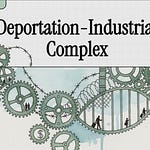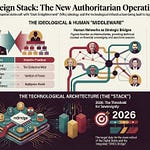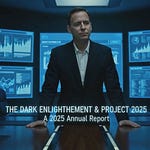In a compelling speech at the United Nations this year, El Salvador issued a stark warning to the United States and the global community about the ongoing deterioration of democracy. Drawing from its own turbulent history, El Salvador highlighted the signs of societal decay that echo across the world today. The speech was not a critique but a cautionary tale—a reflection of lessons learned during dark times and a call to action as similar patterns emerge on a global scale.
El Salvador’s Experience: A Nation’s Battle Against Decline
El Salvador's history is a story of resilience in the face of adversity. For decades, the country suffered from civil war, corruption, and gang violence that left its institutions hollowed out and its citizens in despair. Crime and impunity ruled the streets, and distrust in government fueled division and hopelessness. These were symptoms of a decaying democracy—when lawlessness reigns, institutions crumble, and people lose faith in their leaders.
The turning point came when El Salvador committed to bold reforms, prioritizing the safety of its citizens and restoring public trust. By tackling crime, protecting individual freedoms, and strengthening democratic institutions, the country made strides toward stability. Today, El Salvador has positioned itself as a beacon of hope, but its leaders recognize the fragility of democracy and the dangers of complacency.
A Warning for the United States
El Salvador’s UN speech focused on a troubling observation: the same symptoms of decline it faced are now evident in the United States and across the globe. These include:
Erosion of Trust in Institutions:
In the U.S., political polarization has deepened mistrust in the government, the judiciary, and the media. This mirrors the Salvadoran experience when citizens no longer believed their institutions could protect or represent them.
Surge in Crime and Public Fear:
While El Salvador faced rampant gang violence, the U.S. is grappling with rising violent crime and mass shootings, exacerbating fears and eroding public safety.
Political Division and Social Fragmentation:
El Salvador’s civil war divided the nation, much like the increasing polarization in the U.S., where ideological differences have driven wedges between communities and even families.
Challenges to Free Expression:
Globally, censorship, disinformation, and the criminalization of dissent are growing concerns. El Salvador emphasized that protecting free speech and private property are fundamental to preserving democracy.
Global Scale of Democratic Decay:
The Salvadoran president pointed out that what once seemed like isolated issues are now affecting democracies worldwide. Nations are struggling with authoritarianism, populism, and the manipulation of democratic systems for personal or political gain.
A Global Problem: Democracy in Decline
The speech at the UN wasn’t just a message for the U.S. but a wake-up call for the world. Countries across Europe, Latin America, Africa, and Asia are seeing similar warning signs:
Authoritarian Tendencies: Leaders in some nations are consolidating power, limiting opposition, and eroding checks and balances.
Misinformation and Propaganda: Social media has become a battleground where truth is distorted, undermining informed decision-making.
Economic Inequality and Public Discontent: Widening wealth gaps are fueling unrest and distrust in political systems.
Suppression of Dissent: Journalists, activists, and political opponents are increasingly targeted worldwide.
El Salvador’s leader reminded the world that democracy is not self-sustaining. It requires active defense and constant vigilance to protect freedoms and prevent authoritarianism from taking root.
El Salvador’s Call for Unity and Action
Despite its warnings, El Salvador offered hope and a vision for the future. Drawing from its own transformation, the country emphasized the power of collective action and community resilience:
Safety and Justice for Citizens: Prioritizing the safety of honest citizens over the comfort of criminals.
Freedom of Speech: Protecting the right to express ideas, even dissenting ones, as the foundation of democracy.
Community Unity: Encouraging people to stand together against divisive forces and uphold shared values.
The Path Forward for the U.S. and the World
El Salvador’s message is clear: the warning signs of democratic decline cannot be ignored. The U.S., as a global leader, must take decisive action to address polarization, rebuild trust in institutions, and protect individual freedoms. The world must follow suit, fostering cooperation and mutual support to counter the forces of division.
Democracy is fragile, but it is not beyond saving. As El Salvador reminded us, even a small nation can become a refuge of hope and resilience. The global community must act now to ensure that the values of democracy, freedom, and justice endure for future generations.
Conclusion
El Salvador’s experiences serve as a powerful lesson for the United States and the world. The parallels are striking, and the stakes are high. By heeding this warning and committing to action, nations can reverse the tides of decline and build a future where democracy thrives. El Salvador’s journey reminds us that no matter the challenges, hope, courage, and unity can pave the way forward.










